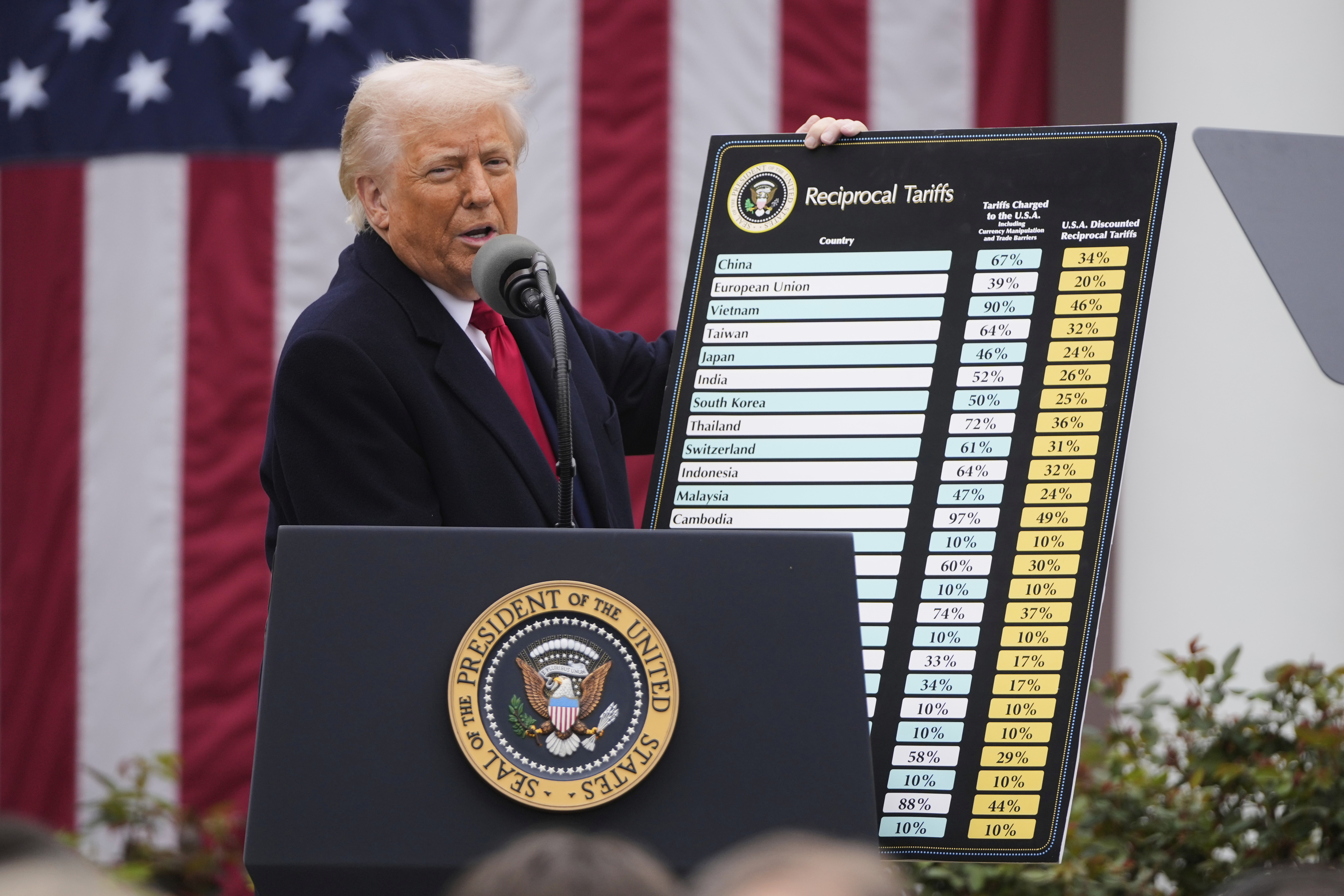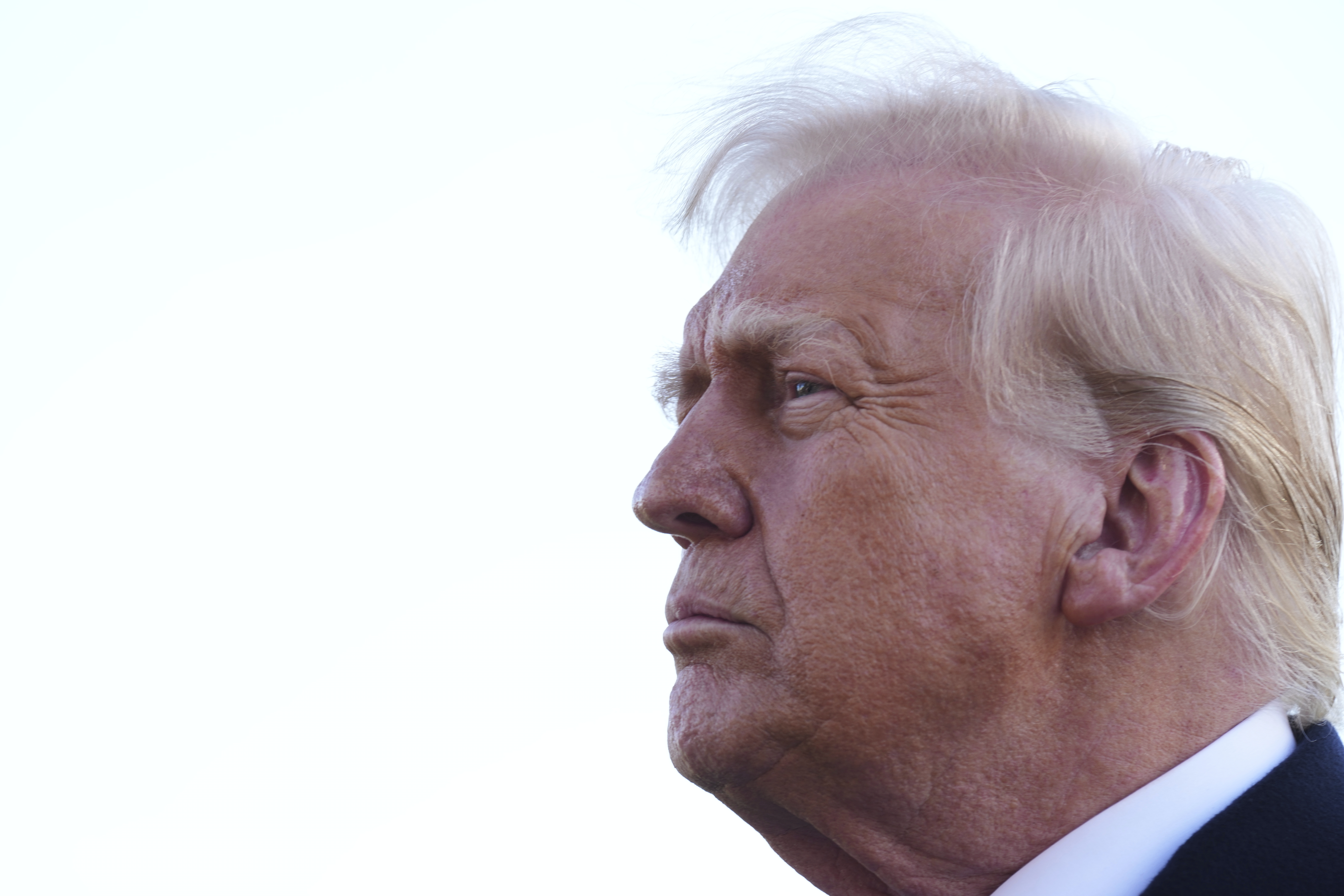Countries around the world have slammed US President Donald Trump's reciprocal tariffs he announced, which is bound to escalate the global trade war, with the US Treasury warning countries not to retaliate.
Canada Prime Minister Mark Carney said on Wednesday that his country will fight Trump's tariffs with countermeasures.
"It's essential to act with purpose and with force, and that's what we will do," he told reporters ahead of a cabinet meeting to discuss Canada's response.
Mexico President Claudia Sheinbaum also said she would wait to take action on Thursday when it was clear how Trump's announcement would affect Mexico.
"It's not a question of if you impose tariffs on me, I'm going to impose tariffs on you," she said in a news briefing Wednesday morning. "Our interest is in strengthening the Mexican economy."
China said it "firmly opposes" sweeping new US tariffs on its exports and vowed "countermeasures to safeguard its own rights and interests".
The Commerce Ministry in Beijing said in a statement that those tariffs "do not comply with international trade rules and seriously harm the legitimate rights and interests of the relevant parties".
It urged Washington to "immediately cancel" them, warning they "endanger global economic development", hurting US interests and international supply chains.
It also accused the United States of a "typical unilateral bullying practice".
The Brazilian Congress approved a law allowing the executive to respond to trade barriers, with the government saying the claim that the US tariffs are for reciprocity "doesn't reflect reality."
Italian Prime Minister Giorgia Meloni, seen as close to Trump, said that tariffs introduced by his administration were "wrong" and would not benefit the United States.
"We will do everything we can to work towards an agreement with the United States, with the goal of avoiding a trade war that would inevitably weaken the West in favour of other global players," she said in a statement on Facebook.
"In any case, as always, we will act in the interest of Italy and its economy, also engaging with other European partners," she added.
South Korea's acting president, Han Duck-soo, directed the Industry Ministry to actively negotiate with Washington to minimise the impact of the US tariffs.
The US Treasury Secretary Scott Bessent said in an interview with Fox News that countries shouldn't retaliate because there would be an escalation.

'Unjustified, illegal, unwarranted'
The head of the European Parliament's International Trade Committee sharply criticised Trump's announcement of a new 20 percent tariff on goods from the European Union as part of his long-promised vow to impose reciprocal tariffs on nations worldwide.
"While President Trump might call today 'Liberation Day,' from an ordinary citizen's point of view, this is 'Inflation Day,'" Bernd Lange said in a statement.
"These unjustified, illegal and disproportionate measures can only lead to further tariff escalation and a downward economic spiral for the US and the world as a whole."
Japan's trade minister said he told his US counterpart that sweeping new tariffs, including a 24-percent levy on Japanese imports, were "extremely regrettable".
"I have conveyed that the unilateral tariff measures taken by the United States are extremely regrettable, and I have again strongly urged (Washington) not to apply them to Japan," Yoji Muto, trade and industry minister, told reporters.
Australian Prime Minister Anthony Albanese said the US tariffs imposed on his country were totally unwarranted, but Australia will not retaliate.
"President Trump referred to reciprocal tariffs. A reciprocal tariff would be zero, not 10 percent," said Albanese.
Speaking from a business forum in India, Chilean President Gabriel Boric warned that such measures, in addition to causing uncertainty, challenge the "mutually agreed rules" and the "principles that govern international trade."

'Keep a cool head'
Other countries tried to keep calm as they approached Trump's tariffs to avoid further escalation.
The UK remains committed to sealing an economic deal with the United States, which could help "mitigate" a 10 percent tariff imposed on exports to the US, a minister said.
"Our approach is to remain calm and committed to doing this deal, which we hope will mitigate the impact of what has been announced," business minister Jonathan Reynolds said after US President Donald Trump imposed sweeping new tariffs on US trading partners.
The German chemicals industry called for the EU to "keep a cool head," warning that "a spiral of escalation would only increase the damage".
The Association of the German Chemical Industry said Germany — an export powerhouse that relies on the US market — "must not become a pawn in an escalating trade war".
New Zealand also took issue with Trump's tariff logic.
Trade minister Todd McClay rejected the figure on the administration's chart about the tariffs New Zealand imposes and said he had asked his country's officials to clarify it.
"We don't have a 20 percent tariff rate," he said, adding that New Zealand was "a very low tariff regime" and the correct figure was below the 10 percent baseline rate applied by the US to all countries.
"We won't be looking to retaliate. That would put up prices on New Zealand consumers, and it would be inflationary," he said.



















